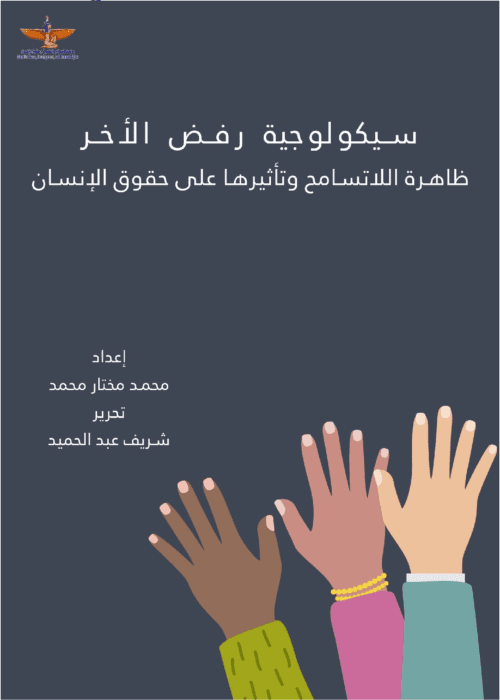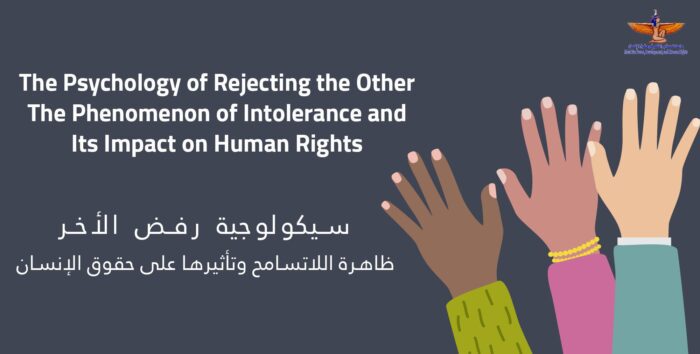On the International Day for Tolerance, Maat indicates the World's Pressing Need to Promote Tolerance
Okeil: Intolerance is a giant that threatens humanity and puts the world close to an imminent humanitarian catastrophe
Mukhtar: Soft power has a key role in promoting and spreading the values of tolerance
On the occasion of the 26th anniversary of the United Nations adoption of November 16, 1995 as the International Day for Tolerance, Maat for Peace, Development and Human Rights released a study entitled "The Psychology of Rejecting the Other... The Phenomenon of Intolerance and Its Impact on Human Rights", which emphasizes today’s world pressing need to the promotion of values of tolerance more than ever, in light of the exacerbation of intolerance, which is clearly evident in the increasing manifestations of xenophobia and aggressive national conflicts as well as the spread of religious intolerance and the associated exclusion and marginalization of religious minorities from societies, in addition to the excessive acts of violence and intimidation against political opposition and human rights defenders who adopt opposing political ideologies, not to mention the increase in hate crimes against refugees, who hold different ideas contrary to the cultural and social context of the societies in which they live. All these manifestations come in conjunction with the continued growth of anti-feminist ideas, which are perceived as a real threat to the culture of the society.
The study highlighted the most important efforts aimed at eliminating the phenomenon of intolerance and hatred, and pointed out the lessons learned from these efforts, in an attempt to develop a set of recommendations that may serve as basis for developing a strategy that contributes to curbing this alarming phenomenon.
In this regard, the international human rights expert and president of Maat, Ayman Okeil stressed that intolerance is a giant threatening humanity and puts the world at an imminent humanitarian catastrophe. Okeil also indicated that these grave consequences will be acutely felt by vulnerable groups, especially ethnic and religious minorities, refugees and women. Okeil added that the majority of these horrific crimes and violations that shocked the world began with a great deal of intolerance, citing the genocide committed against the Tutsi minority in Rwanda in 1994. In addition, Okeil called on the United Nations bodies and organizations to make all efforts possible to end discourses of intolerance and promote tolerance, emphasizing the key role of education in raising awareness about the importance of encouraging tolerance and fighting intolerance in all its forms and manifestations.
For his part, Muhammad Mukhtar, a researcher at Maat, said that soft power has a major role in overcoming the manifestations of violent extremism. Art, for example, plays a vital role in correcting racist ideas, as well as clarifying the severe consequences of the spread of intolerance in societies and among all different religious ideas, stressing also the role of civil society organizations in overcoming extremist and violent ideology.

 |
shortlink: https://maatpeace.org/en/?p=34066












